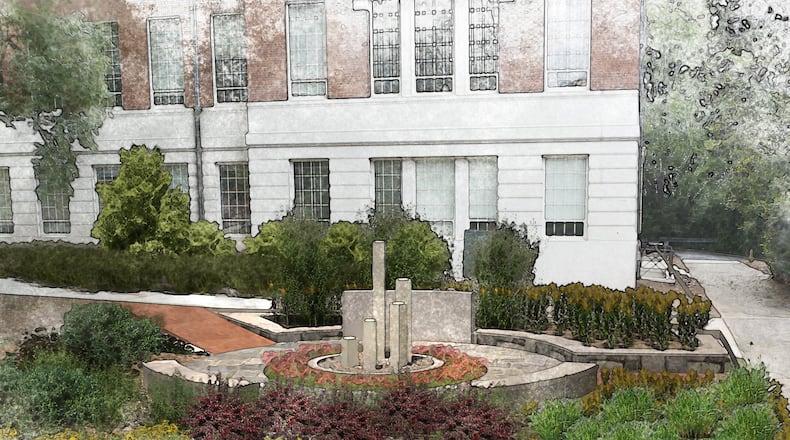The University of Georgia on Tuesday unveiled plans to erect a memorial to honor more than 100 individuals whose remains were found in a slave burial site during a campus construction project almost three years ago.
The discovery of the remains near the Old Athens Cemetery in November 2015 during an expansion project of Baldwin Hall set off contentious debate on campus and in Athens about the role slaves played at the university and the proper way to acknowledge this history. The struggle pitted students, faculty and members of the African American community in Athens against President Jere Morehead and members of his administration, who they criticized for the way the university responded to the discovery.
The university on Tuesday released an architect’s rendering of a granite memorial to be erected on the front lawn of Baldwin Hall. The memorial will include a circular plaza and a granite marker, along with an elevated fountain visible from S. Jackson Street on North Campus. The memorial is the work of a task force Morehead appointed in June.
“The memorial they have helped to develop not only will further honor the lives of the individuals whose remains were discovered, but it also will serve as a source of contemplation and inspiration for generations to come,” Morehead said in a statement.
The release says that most of the individuals found at the burial site “likely were slaves or former slaves.”
The memorial is likely to fall short for those seeking a more full-throated public acknowledgment by the university of its links to slavery and the contributions slaves made to the campus. Since the Baldwin Hall discovery, academics interested in this history and community activists in Athens have pushed for a more open exploration of UGA's ties to slavery. But Morehead and university leaders have been reluctant to go down that path.
An initial news release in 2015 suggested the remains were of white Athenians, not those of black individuals. More than a year later, the university acknowledged the remains were mostly those of black individuals.
Fred Smith, a UGA alumnus and a leader in Athens’ black community who has been pressuring the university to address this history, said the memorial is a significant step forward. But he said he still wants to see what is written on the stone to see if it fully acknowledges that the area where Baldwin Hall sits was a slave burial ground.
“We’re pleased with the image as we see it,” Smith said of the rendering. “The University of Georgia has come a long way on this issue.”
Keep Reading
The Latest
Featured



